- Home
- Terry C. Johnston
Dying Thunder Page 2
Dying Thunder Read online
Page 2
Behind the low hills he halted them, ordering off three of the groups, then sending away the fourth to guard the all-important opening in the small valley. If the white man was to flee, he told his warriors, it would be through that saddle. That group was not to attack. Instead, they were to wait for any of the white men to come their way once the settlers were flushed like a covey of quail.
When all was in readiness, Quanah took the small quarter of a red trade blanket that he sat upon and nudged his pony to the top of the hill. There he waved it against the pale background of the sky, watching the two white men turn from their work at some object in front of the first log lodge.
Immediately the three groups burst into motion, yelling, screeching, riding at a gallop for the two wood buildings.
The two men outside in the open, grassy yard threw down the tack they had been soaping and repairing, sprinting for the cabin.
Puffs of gray smoke began to rise above the warrior groups.
One of the white men skidded to a stop, reaching behind him to claw at his back before he fell face first into the dry grass dotted with wind-drifted snow. Some of the first warriors leaped their ponies over him, attempting to get to the second man before he reached the cabin. He grabbed his arm, crying out, and almost stumbled—yet he disappeared through the doorway and slammed it shut as the red horsemen galloped by, their bullets thudding dully into the heavy planks.
As that first wave passed the cabin, puffs of smoke appeared from the windows. From where Quanah sat, there were three windows used by the white riflemen. With one of the settlers already killed, his warriors had only to flush the other five.
Quickly Quanah brought the red blanket over his head and held it there in the steady breeze. Two warriors obediently broke off their attack and ordered their horsemen to a safe distance from the cabin while they rode to talk things over with the war chief atop the hill.
“Burn them out,” Quanah told them. “If we attempt to ride past their windows and kill them—the chances are very small we will kill them. This would be a bad thing, for the odds are very good those five who are left will kill many, many more of us with their big buffalo-killing guns. Burn them out!”
The two returned to their bands, calling forth the Fire Carrier—the one who kept his hot coals smoldering in a protective gourd when they marched from camp to camp, fire to fire. A dozen of the warriors quickly made firebrands using the dried, belly-high prairie grass.
The torches glowed and smoked smudgy trails against the blue sky as the warriors raced in. This was the most dangerous work of all, Quanah admitted. His men were riding in defenseless, not shooting arrow or bullet while their hands carried the crackling firebrand. And the horsemen had to ride close—very close—to drop the torches through the windows—into the earth and wood lodges where the white man squatted like a badger in his hole … with those big-barreled buffalo guns of his.
Rider after rider swept past the windows. Some of the torches fell short. One horseman was knocked off his animal and dragged across the ground to safety by the long rawhide rope lashing him to his pony. Most of the firebrands fell against the sides of the log lodge. Only two of the torches made it into the cabin.
They were enough.
It did not take long for the smoke to begin wafting from the chimney, pouring thick and greasy from the three windows Quanah could watch. Then as the smoke darkened and grew thicker, boiling black as if it rose from a grease fire, he instructed his warriors with his blanket to await the bolting of their prey from its den.
A few minutes more and two of the white men burst out of the cabin, coughing, their rifles still held up at the ready.
Warriors hammered their ponies into action, intending on running the white men down. But first one, then a second horseman fell to riflefire. And from the looks of it, those deadly guns were being fired from the second of the white man’s log lodges.
So. A pair of white men had been in the second log lodge all the time and his scouts had missed them. Quanah grew furious inside, his hatred seething for these settlers come to Kwahadi ground.
The two who had fled from the cabin sprinted across the wide, grassy yard and found safety in the barn. Three more white men appeared at the door of the cabin, driven out by the thick columns of dark smoke issuing from every window.
As the Kwahadis galloped in to make the kill, the three white men bolted headlong for the barn while the four already there laid down a covering fire.
His anger grown to a rage, the war chief became a warrior once more. Without waiting for any of the rest to take the initiative, Quanah put heels to his pony and raced off the hillside for the cabin. At a full gallop he reined his pony toward the front window, leaning off the side of the animal to sweep up one of the burning firebrands that had not made it inside the first log lodge. Bringing his pony around in a broad circle, Quanah rode for the barn with the torch smoking and hissing, sparks sputtering on the cold winter breeze.
Bullets whined angrily overhead like noisy yellow wasps on a spring day. He felt the sting of one of those bullets at the moment he pitched the firebrand through the narrow opening at the back of the barn where the white man had stacked a tall pile of grass.
The muscles that lay banded along his arms and shoulders like woven wire grew taut. Sawing the rawhide reins hard to the left, Quanah urged his pony away from the white man’s guns—but not quickly enough.
He sensed the flutter in the pony’s heart … a misstep, then the animal pitched forward suddenly, throwing its rider clear.
Quanah rolled and rolled across the dry, smothering grass and frozen, crusty patches of snow, coming at last to a stop far from the white men who had just killed his favorite war pony.
On all four sides of the small valley, his warriors set up a great cry of rejoicing, for the firebrand had gone in and quickly ignited some of that dried grass the white man foolishly stored to feed his stock.
With white smoke billowing from doors on both sides of the barn, the seven white men darted into the open in a tight group, hurrying for the skimpy timber along the little nearby creek.
With their quarry flushed into the tall grass, the young warriors had great sport with the settlers who no longer had any place to hide.
It was over quickly.
Quanah watched as the noisy young men laughed and joked over the eight bodies, counting coup and scalping, stripping them of their clothing to try it on, then cutting off hands and feet, and finally the manhood parts. Each of the eight were left facing the sky—for they had fought hard to the end and were worthy enemies. Their courage had not shriveled in the face of the Comanche horsemen, shriveled up like last summer’s stalks of buffalo grass.
“Do you claim any of the white man’s horses, Quanah?” asked one of the older warriors.
“I should look over the animals in the log corral. If I don’t find one that will let me ride it on this hunt—I will have a long walk home!”
“That gray one looks strong,” suggested the warrior.
“Quanah!” yelled a young scout tearing across the crusty snow, racing in off the nearby hill. “Soldiers—they come!”
“Where?” he asked. “How many!”
The scout pointed to the east, his face grave. “Ten times ten. More,” he replied, striking his left forearm twice.
“Tonkawa trackers lead them?”
The scout nodded, his eyes filling with great concern.
Sweeping his red blanket from the ground, Quanah turned to some of the others. “Open that horse pen and bring the big gray horse. Drive the others away before you when you leave.” He brought the blanket over his head, waving it swiftly from side to side. “Ride, my brothers—soldiers come! Ride now!”
Two mounted warriors brought the prancing gray horse up, its eyes wide with fear at the foreign smell of the Kwahadis, its nostrils flaring as it tested what was brought it on the cold wind.
“You do not like the smell of Comanche, do you, my new friend?”
&
nbsp; Quanah tore the shiny concho slide from the yellow bandanna at his neck and looped the bright cloth over the horse’s eyes, tying a knot securely behind the animal’s jaws. As the two warriors held the big stallion, the Comanche war chief leaped on its bare back.
When it attempted to rear, Quanah instead drove his heels into its rear flanks. The horse bolted off, followed by the last of the raiding party to leave the scene of the attack.
“You will do, my new friend,” Quanah whispered into the horse’s ear, leaning forward as they raced up the snowy slope. “We will learn much from one another.
“Between now and the short-grass time when the Kwahadi will join the Cheyenne and Kiowa in one great fight against the white hide hunters, you and I will kill many buffalo together and learn much about each other.”
The cold breath of Winter Man whipped tears from his eyes as the great gray horse easily surged ahead of the other ponies, its hooves tearing up clods of frozen ground and crusted snow.
“Then will come the time I will proudly ride you as I lead a thousand warriors down to drive all white hide hunters from the Staked Plain—for all time!”
1
January 1874
Already the Kiowa and Comanche were slaughtering their ponies to feed their starving families.
Warriors who had once felt the free wind blow through their unfettered hair as they galloped knee to haunch with the bulls and cows of those great herds were now reduced to butchering their own ribby, starving ponies.
Reuben Waller felt himself shrivel up and cry inside for them. Especially the little ones among Kicking Bird’s Kiowa or old Ten Bears’s Comanche bands who had willingly given up the old ways and obediently did as the white man told them: stay on the reservation; do not hunt the buffalo; believe in the white agents and soldiers, that their families will be fed with enough to fill the bellies of the crying children.
But the blizzards had come. Not just one, but one on the back of another. And then the monthly allotments for the reservation bands were delayed. Some flour, filled with wriggly weevils, did make it through just after the first of the year. Much of the rest never arrived at Fort Sill, nor farther north at the Darlington Agency for the Southern Cheyenne. Sergeant Waller was growing convinced that the government traders and contractors were simply waylaying the shipments, selling the goods on the side, and then double-billing an ignorant, apathetic Indian Bureau back in Washington City.
“They don’t give a good goddamn for these Injuns,” Waller muttered to himself as he brushed down his mount with the other soldiers from Company H among the stalls at Fort Sill, I.T. Indian Territory.
He had just led them north across the Red River from Texas with their two prisoners. White men both. Caught after an exhausting chase that had taken Waller’s Negro soldiers all the way to eastern New Mexico, tracking a small band of white horse thieves who had stolen the pride of the Kiowa herd and pointed their noses west. Two were all Reuben ended up bringing back alive. The rest of the white thieves he and his Company H, Tenth U.S. Negro Cavalry, had left in shallow graves among the foothills of New Mexico. Along with two of Reuben’s men.
Now Sergeant Waller had sworn he would see the two white men swing from the end of a rope for their crimes—if for no other reason than the hanging would show the restless, angry warriors that the army was serious about the growing unrest among the reservation bands. If the army and the agents weren’t able to put an end to the horse thieving and the whiskey trading, then the army was sure as hell destined to have its hands full come green-up.
Spring would see the warriors slipping off the reservation for the open country to the west. Out there to the Texas Panhandle. The no-man’s land south of the dead line where no white man was supposed to tread. The home of the greatest light cavalry the world had yet to see. That was the Staked Plain, home to the Kiowa and the Kwahadi Comanche.
Reuben turned at the sound of the familiar voice coming through the far doorway of the long company stable standing at the edge of the Fort Sill parade. Captain Louis H. Carpenter strode through the frosty breath of men and animals that made for a fog this sub-freezing January afternoon.
“Thought I’d find you with your men, Sergeant,” said Carpenter, the white commander of H Company, Tenth Cavalry.
With a salute and that wide smile of his creasing a well-lined face, Waller replied, “Looked you up when we rode in late morning, Cap’n. Figured I could report in after we got squared off.”
“That can wait, Sergeant.” Carpenter presented his hand in a show of genuine affection. “Good job, Reuben. Damned good job.”
He felt the tug at his throat, knew his heart was rising to it with a heavy, sour lump. It had been this way many a time for Sergeant Waller, a youngster come of age in the Civil War, who joined up to fight Indians out on the plains not long after Appomattox. From the very first day of the newly-formed Tenth U.S. Cavalry, Reuben Waller had been out here on the central and southern plains. Riding beside Captain Carpenter, himself a man who inspired great loyalty among his brunettes, as the Negro troopers were called by their white counterparts.
Known as buffalo soldiers to the warrior bands of the great plains, wherever the Negro regiments were serving with unrelenting distinction.
“Thank you, Cap’n,” he said, his voice heavy as his throat constricted. His eyes misting slightly with the nagging bite of the cold, Reuben watched some of the rest of his detail wander close. “We … we—”
Carpenter put a hand on Waller’s shoulder. “It’s all right, Sergeant. We can’t always bring back all the men we take with us when we march away from post. Many a time, so many a time … well—you’ve heard me talk of Sandy Forsyth and me down in the Shenandoah, haven’t you?”
He nodded. “Major Forsyth. Yes, Cap’n.”
Reuben doubted he would ever forget those stories of Phil Sheridan’s Shenandoah campaign, tales of heroics and blood, battles and gripping fear he had come to know like the fragments of his own life. How Forsyth had taken three pieces of Confederate lead during those long weeks of that Union campaign to squeeze off the rebels’ supply lines, yet Forsyth still gritted his way into the saddle for every major battle.
It was that same George A. Forsyth, friend and fellow officer to a young Louis H. Carpenter, who had led fifty woolly civilians onto the trackless high plains of western Kansas and eastern Colorado Territory some six years before, stalking the fearsome Dog Soldiers of the Southern Cheyenne. Until Roman Nose and Pawnee Killer turned and snapped back at those fifty frontiersmen.*
They had been cut down to twenty-eight who had not been wounded, all huddled on a sandbar in the middle of the Arickaree Fork of the Republican River, in a stinking ring of bloating horse carcasses and puddles of river seep the civilians had dug down into the sand to stay alive for those nine days of siege.
It was Captain Louis H. Carpenter’s H Company, those shiny black faces of young soldiers anxious to prove themselves every bit as good as white cavalry, who were the first to raise the siege at the Arickaree. And it was none other than Carpenter himself who was first to cast his shadow over an old friend who sat at the bottom of a rifle pit grittily holding out against the pain of his three wounds, each inflicted by the Cheyenne in the first day’s fighting.
It was there at the edge of Forsyth’s pit, the blood dried at the bottom after days of relentless summer sun, that Reuben himself recognized the face of an old friend, the tall Irishman called Seamus Donegan.
Later that winter of 1868–69, Reuben had once more run across the gray-eyed plainsman out on the mapless expanse of the Texas Panhandle when Major Eugene Carr dispatched Donegan and a young Bill Cody out to search for Penrose’s Negro soldiers. The two scouts did locate the buffalo soldiers, starving, despairing of surviving long enough to be rescued.†
And since that time, Waller had seen ever more of the central and southern plains, stationed first out of Fort Wallace, then Camp Supply, and now out of Fort Sill itself. It was where last fall, after som
e four years, Reuben had once again crossed trails with the long-haired Irishman with the ready grin and the sparkling gray eyes. He had been going south of the Red River with Jack Stillwell, another veteran of that famous fight at Beecher Island on the Arickaree. South to see what there was of the country around Jacksboro, Texas, where veteran scout Sharp Grover had settled down. Then months later, to the surprise of them all, Waller had bumped into both Donegan and Stillwell out on the aching expanse of the Staked Plain following the first blizzard of the winter. Waller was marching east with his pair of prisoners when his army posse ran across the white plainsmen and their military escort, stranded by the howling fury of winter come to the plains.*
Carpenter breathed deeply of the shockingly cold air, pursing his lips as if to hold down the pain of remembering the men who he had himself been forced to watch die in the many years he had devoted to the service to his country. He cleared his throat as if something thick threatened his forthcoming words. “Well, Sergeant—we’re marching south come morning.”
“South?” Waller asked as the rest of the black soldiers inched closer.
“Camp Augur.”
“On the Red River. Yes, sir. I hear some war parties been sniping into the stockade there, firing at wood and water details—making everybody nervous as a bitch in heat. How long you figure we’ll be dutying there?”
The captain shrugged. “No telling, fellas. All I know is I hope it will be a quiet winter. Give us time to put some meat on the ribs of these skinny mounts.”
“And us too, sir!” Waller replied with a laugh, patting his own ribcage.
Carpenter nodded. “One thing’s for certain—we’ll all need to be in riding form come spring, fellas. Way everything is pointing, we’ll be busy when warm weather arrives.”
“War parties, sir?”
“These Kiowa and Comanche can’t sit still for long watching their families slowly starving, living on the ponies they butcher to make up for what the government doesn’t give them. I figure we’ll have our hands full, Reuben. That, and more come spring.”

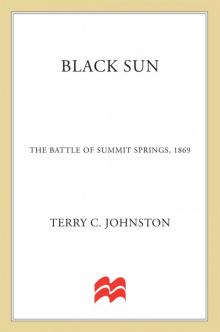 Black Sun, The Battle of Summit Springs, 1869
Black Sun, The Battle of Summit Springs, 1869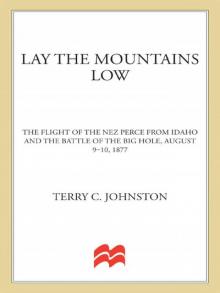 Lay the Mountains Low
Lay the Mountains Low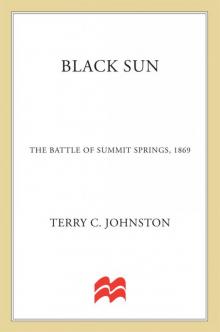 Black Sun: The Battle of Summit Springs, 1869 (The Plainsmen Series)
Black Sun: The Battle of Summit Springs, 1869 (The Plainsmen Series)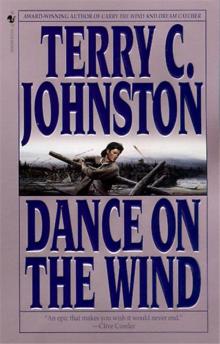 Dance on the Wind tb-1
Dance on the Wind tb-1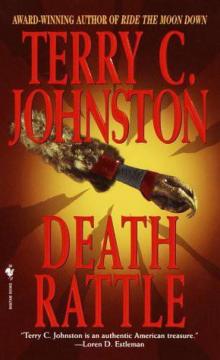 Death Rattle tb-8
Death Rattle tb-8 The Stalkers
The Stalkers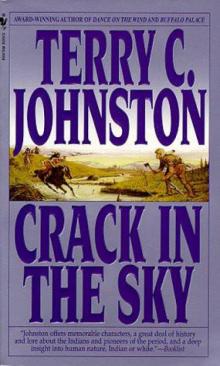 Crack in the Sky tb-3
Crack in the Sky tb-3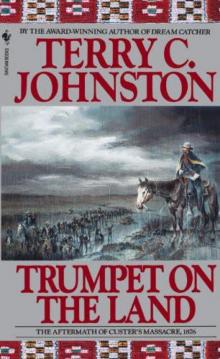 Trumpet on the Land: The Aftermath of Custer's Massacre, 1876 tp-10
Trumpet on the Land: The Aftermath of Custer's Massacre, 1876 tp-10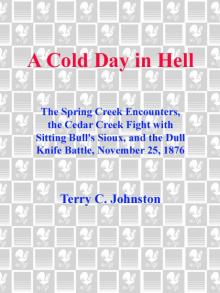 A Cold Day in Hell
A Cold Day in Hell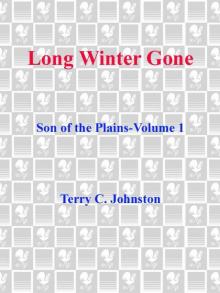 Long Winter Gone: Son of the Plains - Volume 1
Long Winter Gone: Son of the Plains - Volume 1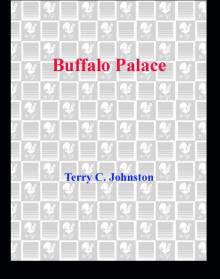 Buffalo Palace
Buffalo Palace Cries from the Earth
Cries from the Earth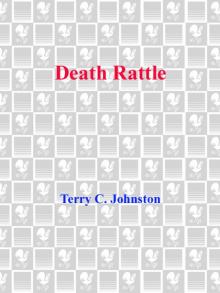 Death Rattle
Death Rattle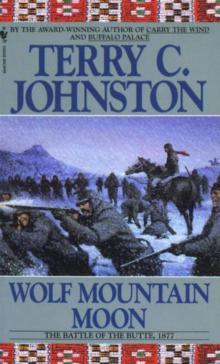 Wolf Mountain Moon: The Battle of the Butte, 1877 tp-12
Wolf Mountain Moon: The Battle of the Butte, 1877 tp-12 Crack in the Sky
Crack in the Sky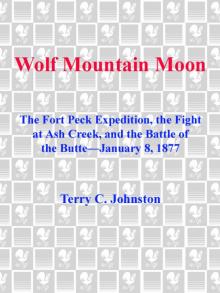 Wolf Mountain Moon
Wolf Mountain Moon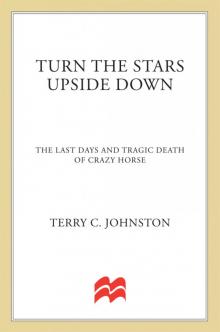 Turn the Stars Upside Down: The Last Days and Tragic Death of Crazy Horse
Turn the Stars Upside Down: The Last Days and Tragic Death of Crazy Horse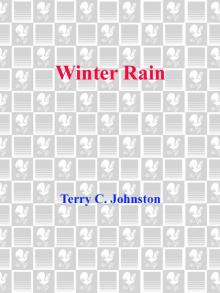 Winter Rain
Winter Rain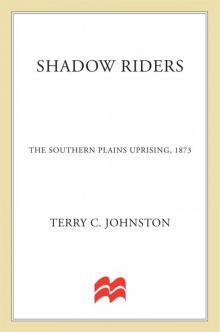 Shadow Riders: The Southern Plains Uprising, 1873 (The Plainsmen Series)
Shadow Riders: The Southern Plains Uprising, 1873 (The Plainsmen Series)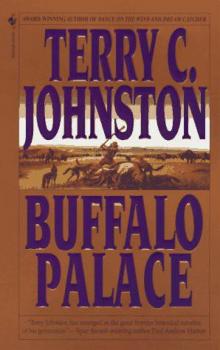 Buffalo Palace tb-2
Buffalo Palace tb-2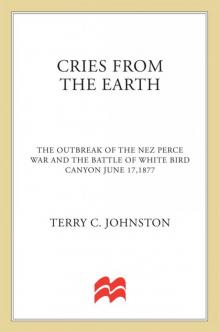 Cries from the Earth: The Outbreak Of the Nez Perce War and the Battle of White Bird Canyon June 17, 1877 (The Plainsmen Series)
Cries from the Earth: The Outbreak Of the Nez Perce War and the Battle of White Bird Canyon June 17, 1877 (The Plainsmen Series)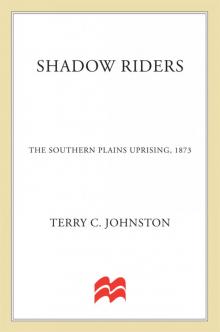 Shadow Riders, The Southern Plains Uprising, 1873
Shadow Riders, The Southern Plains Uprising, 1873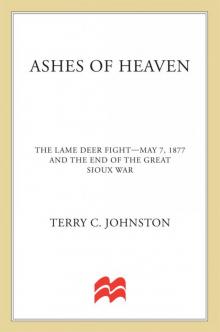 Ashes of Heaven (The Plainsmen Series)
Ashes of Heaven (The Plainsmen Series)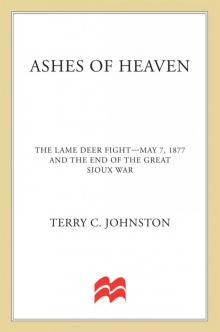 Ashes of Heaven
Ashes of Heaven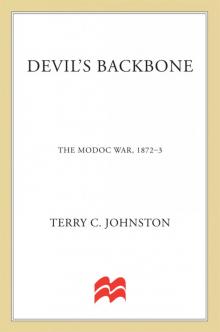 Devil's Backbone: The Modoc War, 1872-3
Devil's Backbone: The Modoc War, 1872-3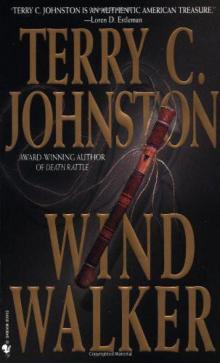 Wind Walker tb-9
Wind Walker tb-9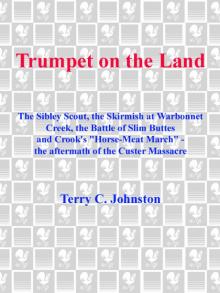 Trumpet on the Land
Trumpet on the Land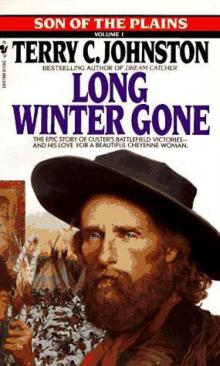 Long Winter Gone sotp-1
Long Winter Gone sotp-1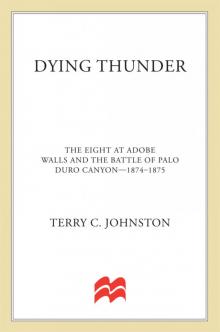 Dying Thunder
Dying Thunder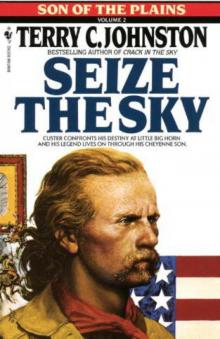 Seize the Sky sotp-2
Seize the Sky sotp-2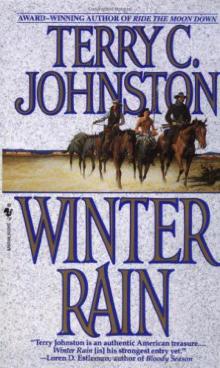 Winter Rain jh-2
Winter Rain jh-2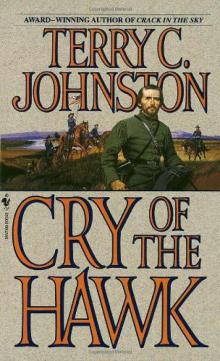 Cry of the Hawk jh-1
Cry of the Hawk jh-1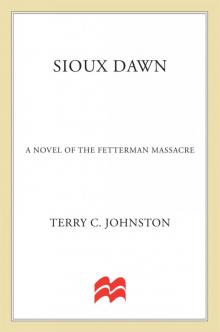 Sioux Dawn, The Fetterman Massacre, 1866
Sioux Dawn, The Fetterman Massacre, 1866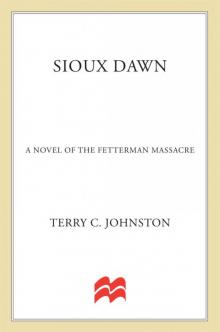 Sioux Dawn: The Fetterman Massacre, 1866 (The Plainsmen Series)
Sioux Dawn: The Fetterman Massacre, 1866 (The Plainsmen Series)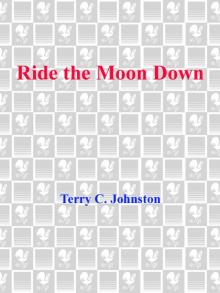 Ride the Moon Down
Ride the Moon Down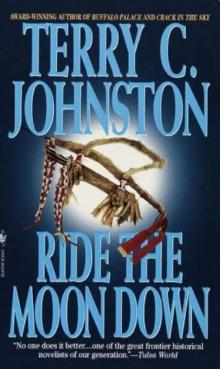 Ride the Moon Down tb-7
Ride the Moon Down tb-7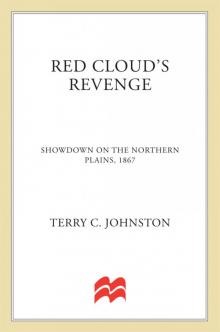 Red Cloud's Revenge
Red Cloud's Revenge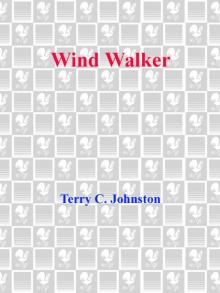 Wind Walker
Wind Walker